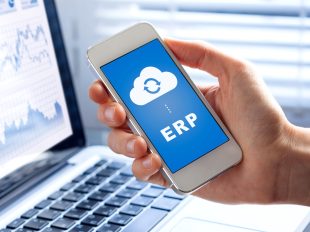These days, the need for any company, of any sector and size, to have a management software is beyond doubt. In fact, a management software allows you to speed up, optimize and simplify business processes, making them constantly efficient. It must also be said that a good ERP management system allows you to manage all the processes in an integrated way, so without following the departmental logic of classic management applications. This way, optimising the general management of the various company areas and the related flows becomes much simpler. However, when a company decides to acquire a new ERP, there may be some doubt as to whether to choose a solution in client server mode or in the cloud.
These are very different systems, with cloud ERPs that have undeniable advantages, responding on the one hand to the continuous evolution of the organisational needs of the company, and on the other to the workers’ demand for flexibility. Unfortunately, however, there is still some confusion about the characteristics of cloud management systems today, so let’s dispel some myths.
The false myths about ERP management systems in the cloud:
Cloud management systems are suitable for everyone
When promoting an ERP management system it is often said that it is the best solution for any business, regardless of its actual characteristics. In general, this is absolutely true, with cloud management systems representing the ideal option for always having everything under control, at any time.
However, there is one exception that should not be overlooked: those (few) companies that operate in areas where connection to the network is still difficult and slow today. We are talking about a few isolated cases, destined to decrease over time with the progressive connection of the most remote areas. However, remember that: the only fundamental prerequisite for having an efficient ERP management system in the cloud is a good connection.
The cloud is not secure
This is certainly the most common false myth around the use of an ERP management system in the cloud. In fact, many people think that data is more secure in the company server than it is in the cloud. In reality this is not the case at all, as the data stored in Datacenters are retained and managed in compliance with the highest international standards with regards to reliability and security. A corporate server, for its part, is much more exposed to attacks from the outside, information theft, system crashes and so on.
Choosing a good cloud solution provider means being able to count on a partner who implements a security system on multiple levels, guaranteeing maximum protection of corporate data. Those who opt for on-premises solutions must instead manage the security of the data themselves, but have nowhere near the same resources to put in place for their defence.
Data lost when changing management system
This is another false myth about cloud management systems. In many cases we hear that it would be difficult or even impossible to migrate existing data to a cloud system, or that it would be difficult to move them in the event of a future change. This is not the case at all: transporting data from one cloud management system to another (and vice versa) does not present any problems.
The advantages of cloud management
ERP cloud management systems are therefore safe, suitable (with very few exceptions) for any type of company and can be used in any case. In addition to this, a system of this type offers access to management data in any place and at any time, a fundamental factor when thinking about corporate mobility and working from home.
These solutions also allow you to reduce the costs for the company, starting from the management and maintenance costs: all the expenses necessary for purchasing and maintaining a performing and secure hardware infrastructure for your data are automatically eliminated, as well as the task of regularly carrying out software updates.




